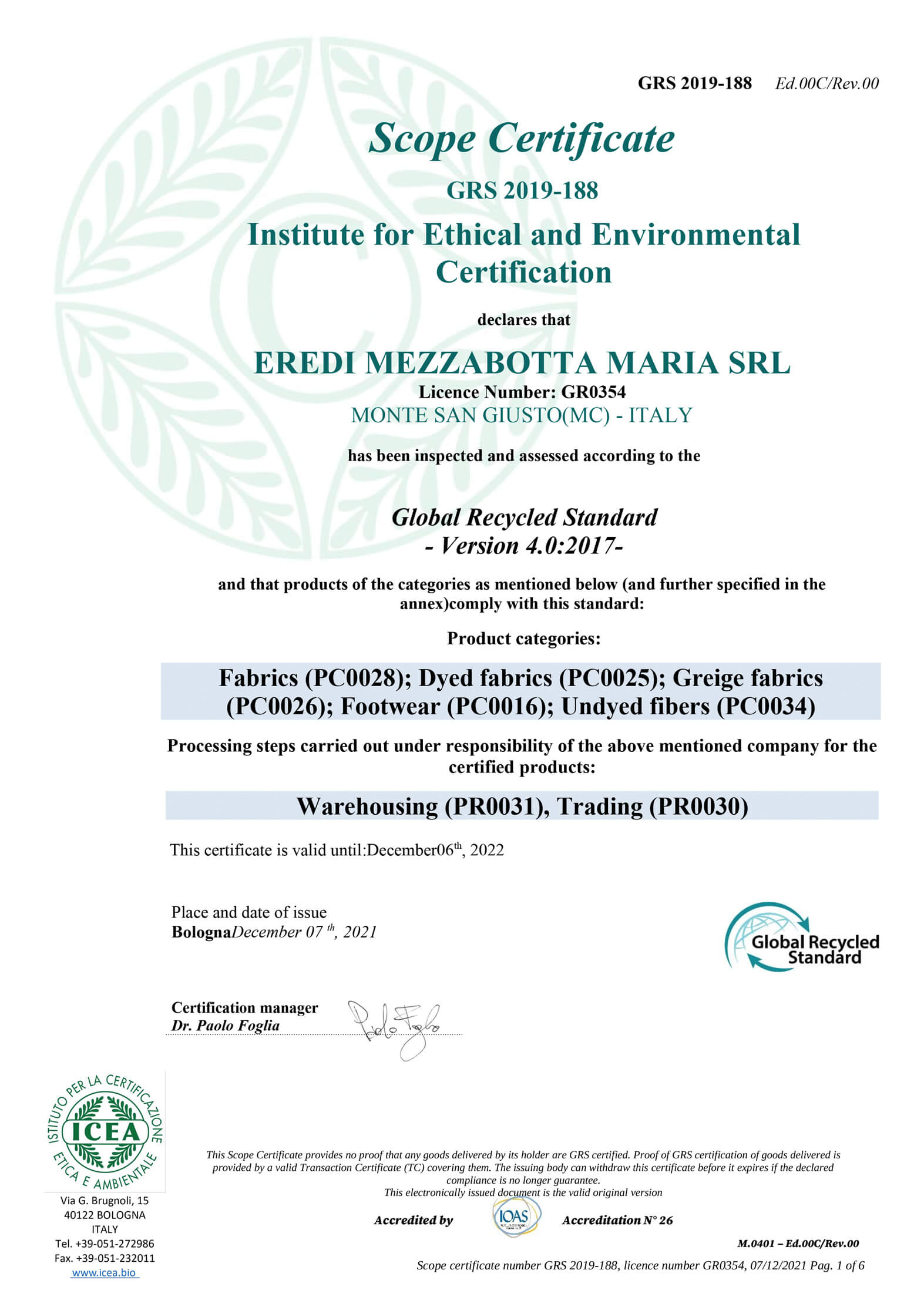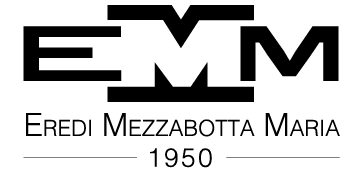
Global Recycled Standard
The Global Recycled Standard (GRS) is promoted by Textile Exchange , one of the most important non-profit organizations that internationally promote responsible and sustainable development in the textile sector . With this standard, Textile Exchange recognizes the fundamental importance of recycling for the growth of a model of sustainable production and consumption; aims to encourage the reduction of resource consumption (virgin raw materials, water and energy) and to increase the quality of recycled products. The GRS provides for the issue of a third party verified environmental statement which proves:
the content of recycled materials of their products (both intermediate and finished)
compliance with environmental and social criteria in all of the production chain.
All products that are composed of at least 20% of pre-consumer and post-consumer recycled materials can be GRS certified . The GRS criteria extend to the following areas:
Product composition and content of recycled materials
Maintaining traceability throughout the entire production process
Restrictions on the use of chemicals.
Compliance with relevant environmental criteria which may concern: water supply; waste discharge; and water drains; energy recovery (use of selected waste); polluting emissions into the atmosphere; waste production and management; soil and groundwater contamination; management of dangerous substances, preparations and materials; noise emissions; emergency management
Compliance with social criteria relating to workers’ rights.
Steps that do not require certification:
Refuse collection
Sorting, selection, grouping.
Phases covered by the certification:
Recycling of materials
Every manufacturing process through which the recycled material is used to make intermediate products (for example: yarns and fabrics) or finished products intended for the consumer.
Il Global Recycle Standard è promosso da Textile Exchange, una delle più importanti organizzazioni non-profit internazionali per lo sviluppo responsabile e sostenibile nel settore tessile. Lo standard riconosce l’importanza del riciclo per la crescita di un modello di produzione e consumo sostenibile, con l’obiettivo di favorire la riduzione del consumo di risorse (materie prime vergini, acqua ed energia) ed aumentare la qualità dei prodotti riciclati.
Il GRS prevede il rilascio di una dichiarazione ambientale verificata da parte terza che assicura il contenuto di materiali da riciclo dei loro prodotti, sia intermedi che finiti, il mantenimento della tracciabilità lungo l’intero processo produttivo, le restrizioni nell’uso dei prodotti chimici ed il rispetto di criteri ambientali e sociali in tutte le fasi della filiera produttiva dal riciclo dei materiali, alle successive fasi manifatturiere, fino all’etichettatura del prodotto finito. Le fasi che non rientrano nella certificazione sono la raccolta dei rifiuti, la cernita, selezione e raggruppamento. Possono essere certificati in base al GRS i prodotti e le attività manifatturiere
IL GLOBAL RECYCLE STANDARD GARANTISCE:
Prodotti contenenti almeno il 20% di materiale da riciclo pre-consumo e post-consumo;
Attività e processi manifatturieri attraverso i quali il materiale riciclato viene impiegato per realizzare prodotti intermedi (ad esempio: filati e tessuti) o prodotti finiti destinati al consumatore, che utilizzino modelli e procedure gestionali conformi ai requisiti fissati.
Definizione e testi dal sito Ufficiale Icea. Per Maggiori informazioni: www.icea.bio



